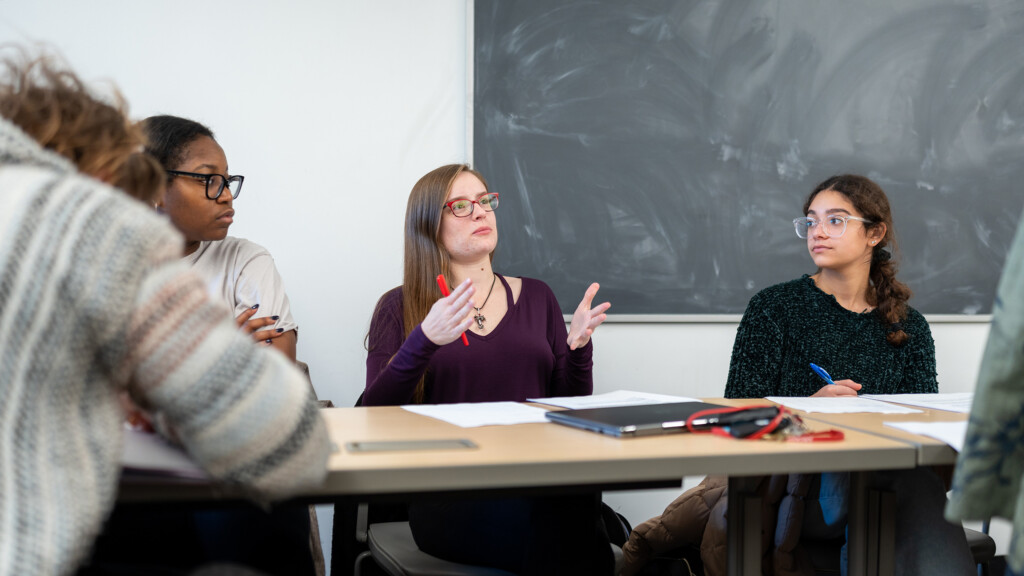Overview
- Degree Level
- Undergraduate
- Degrees Offered
- Bachelor of Arts
- Department
- Historical and Political Studies
- school/college
- College of Arts and Sciences

The Political Science Major at Arcadia focuses on the theory and practice of politics, the analysis of political systems and behavior, and domestic and international law and legal systems. This major contributes to a broad-based liberal arts education by developing critical thinking skills, analytical skills, and strong communication skills, all while attempting to come to grips with the major public issues of our time. You will learn to analyze and evaluate conflicting solutions to real-world problems and to communicate effectively by exploring and critiquing the legal, political, and policy issues of the day.
Arcadia’s Political Science faculty develop authentic relationships with students through hands-on learning experiences, whether it be engaging in-class simulations or experiential learning outside of the classroom. Students are prepared for careers or graduate study in local, state, and federal government, law, public policy, and non-profit work and management.
Students in this major also benefit from Arcadia’s vast global network of study abroad programs and experienced faculty who travel the globe with students. Additionally, Law and Public Policy majors have a clear path to the assured admissions program (4+3) or the accelerated admissions program (3+3) with Drexel University’s Thomas R. Kline School of Law.
Every four years Americans go to the polls to elect the next President of the United States, their representatives in the House, and one-third of their representatives in the Senate. In the years between presidential elections, Americans go to the polls to (re)elect their representatives in the House and the Senate. We also vote in local and state elections. Learn how this all happens: how do elections and campaigns actually work and do they produce results that are truly representative of the American people? Participate in lectures, discussions, and a campaign simulation activity. Gain a better appreciation for how campaigns and elections work in the U.S. and the role of citizens in American democracy.
You will study a broad overview of topics under the headings of the United States Congress and the Presidency, including the history of these institutions, the way these institutions work or do not work, and the interaction of the two. Acquire a full understanding of the roles and powers of these two branches of government, and how they work together and oppose each other. Gain a better understanding how our government operates and functions and better able to make sense of the politics unfolding in our nation – both the legislative gridlock and the policy successes.
You will study a comprehensive overview of the role and function of international law in the world system, emphasizing its history, structure, and ability to mitigate conflict. Examine the major components of international law, with particular emphasis on human rights and the law of armed conflict. Explore topics inculding, the use of force, arms control, detention and torture, terrorism, war crimes, and self-determination. This course utilizes reading, research, discussion and simulations, to assist participants in applying legal concepts to current international situations.
